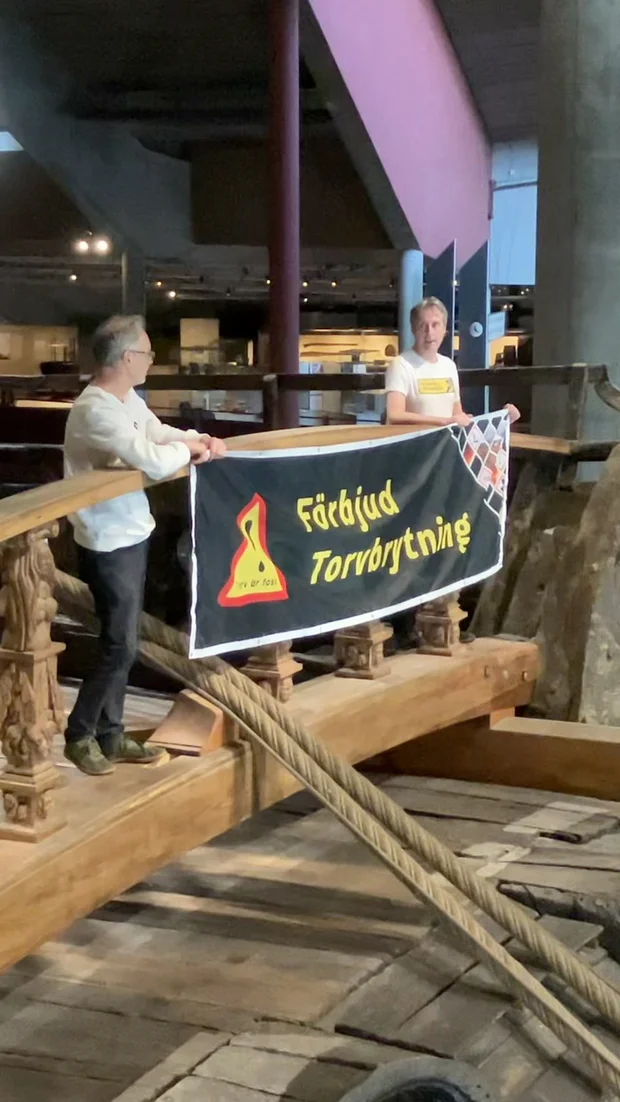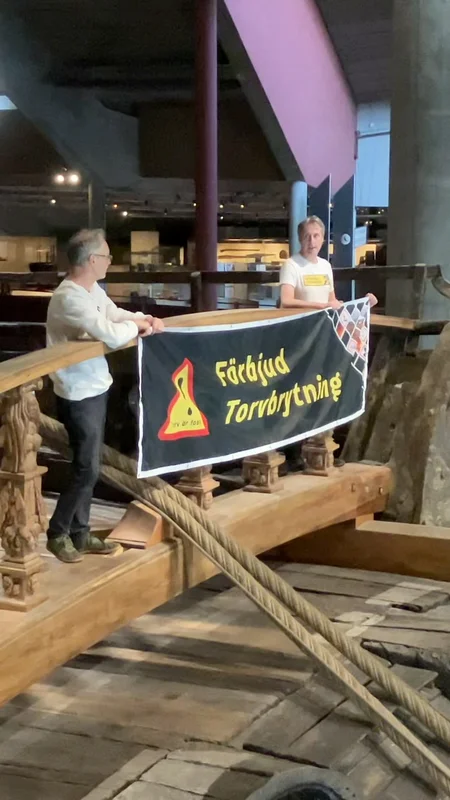I tie myself, like Odysseus, to the mast of the Vasa Ship to oppose lying politicians and their lobby organizations that, like Sirens, lure us with completely unbridled greed. When we all know that their politics are downright deadly,” says Pontus Bergendahl who boarded the ship.
The Vasa Ship weighs 1,200 tons. In 2023, 2 million tons of peat were mined in Sweden. This means that 1,667 Vasa Ships are dug out of our bogs every year. The carbon in the peat quickly breaks down into the climate-damaging greenhouse gas carbon dioxide, which causes many times more greenhouse gas emissions than the domestic flight traffic in Sweden. At the same time, the authorities licensed 89 new peat mines in 2023 and the government is keen to see peat used as an energy fuel again, even though peat is dirtier energy than oil, coal and gas due to its lower calorific value. The calorific value calculates the amount of energy that can be extracted in proportion to the carbon dioxide emissions.
For 333 years, Vasa lay preserved underwater. In that time, the peat on our bogs grew by only three decimetres. On average, peat is mined to a depth of 1.5 metres. This corresponds to one thousand five hundred years of stored carbon, 4.5 times the Vasa ship was preserved under water. At the same time, all of Sweden’s emissions are to be zero in twenty years, which is why the Swedish Environmental Protection Agency has determined that peat should be counted as fossil.
Due to trading in emissions rights and setting climate targets, the extraction of peat and the combustion of peat for energy production has decreased somewhat in recent years. However, the use of peat for cultivation purposes has increased. In 2021, 85 percent of Sweden’s peat consumption was used for cultivation and stable bedding. Regardless of whether the peat is used for combustion, cultivation substrate or bedding in stables, the peat breaks down over a ten-year period and the carbon is released as the climate-damaging gas carbon dioxide.
Banning the use of peat for cultivation purposes is a simple and effective way to combat climate change, since plant waste (or manure, bark, wood fiber, etc.) can replace peat in cultivation.
“The Finnish state is ravaging and plundering our bogs and destroying our future. All the money goes straight into the pockets of the Finnish state. The people in the countryside are left with polluted waterways, devastated nature and lost jobs.” says Olof Andersson who took part in the action.
Återställ Våtmarker (Restore Wetlands) is fighting against the Finnish state and their company Neova’s peat mining in Sweden, not with warships, but peacefully with public education and opinion-building. Finland has been granted more than 465 million euros from the EU to halve the use of peat as an energy source. At the same time, the Finnish state, through the state-owned company Neova, has been digging up Swedish bogs for years to mine fossil peat. The state-owned Finnish company Neova is currently behind 72% of all peat mining in Sweden.


